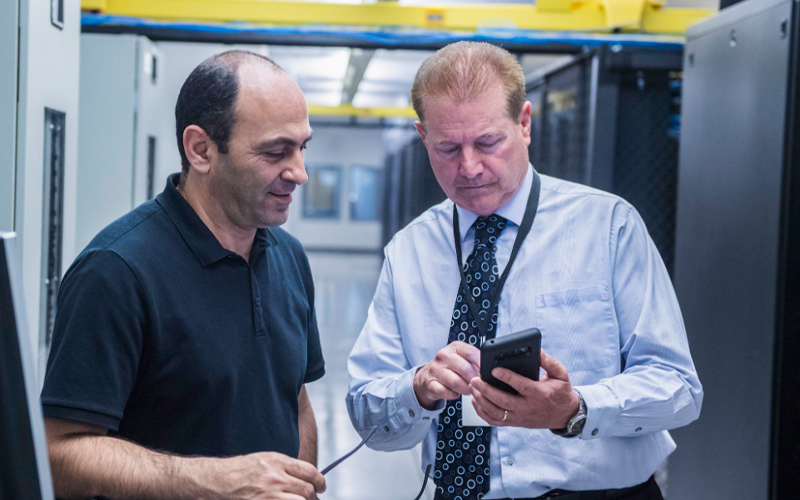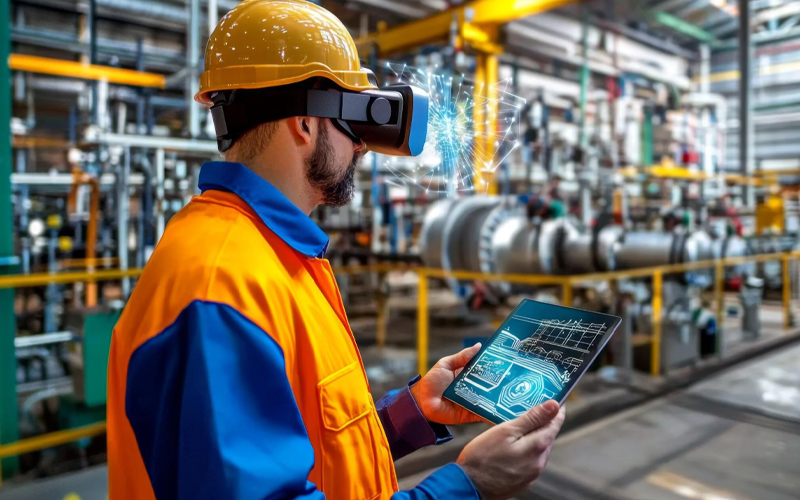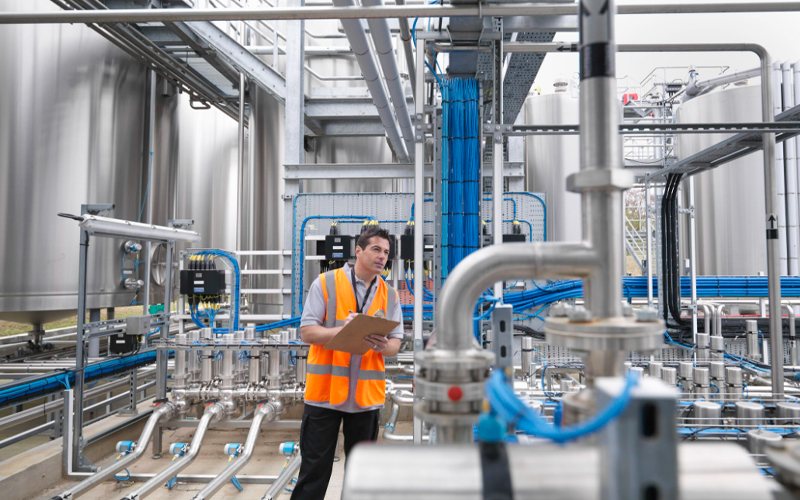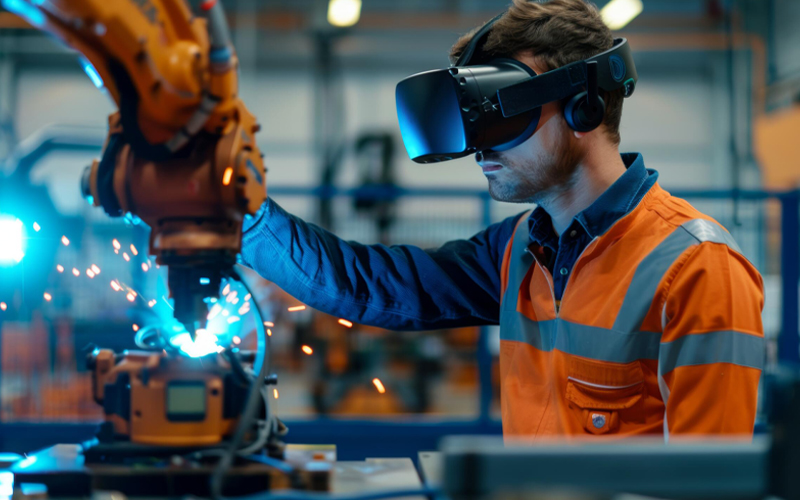Manufacturers worldwide are rethinking how they operate as sustainability becomes a core business driver across industries. Reducing carbon footprint in manufacturing is no longer optional, but a necessity for survival and growth. Leaders now recognise that sustainable manufacturing practices are critical for meeting regulatory demands, securing stakeholder trust, and building resilience in uncertain markets. As a result, the global sustainable manufacturing market is set to grow from $233.56 billion in 2025 to $367.18 billion by 2029, at an 11.3% CAGR. This highlights that the manufacturers are under growing pressure to balance profit with environmental responsibility.
importance of sustainability for modern businesses
Sustainability is not just an ethical choice but a business imperative. Modern organisations see sustainable manufacturing practices as a pathway to resilience, growth, and long-term success. Beyond compliance, the shift creates value for people, communities, and shareholders alike. To fully appreciate the business case for sustainability, it is important to understand the tangible advantages it brings, such as:
- Competitive advantage and access to new markets.
- Reduced business costs and improved bottom line.
- Greater innovation and product differentiation.
- Enhanced staff safety, satisfaction, and retention.
- Compliance with evolving regulations.
- Reduced environmental impact and energy savings.
- Stronger community development through local job creation.
key challenges in implementing sustainable manufacturing practices
The path to sustainability is promising but not without obstacles. Many manufacturers face constraints that demand strategic foresight and long-term commitment, including:
- High upfront investment and financial constraints.
- Lack of expertise and technical knowledge.
- Stakeholder resistance and organisational inertia.
- Complexity in navigating regulatory frameworks.
- Measuring sustainability impact with accuracy.
- Competitive and market pressures to deliver faster results.
strategies to implement sustainable manufacturing practices
Businesses aiming to thrive in a resource-conscious world need structured approaches to sustainability. The following strategies provide practical direction for leaders pursuing sustainable manufacturing practices.
applying lean manufacturing principles
Streamlining operations reduces waste, cuts costs, and improves efficiency. Lean processes minimise unnecessary inputs and maximise output while maintaining quality.
adopting renewable energy solutions
Switching to renewable energy sources such as solar, wind, or bioenergy lowers emissions and ensures long-term energy resilience.
advancing circular economy models
Circular economy in manufacturing focuses on reusing, remanufacturing, and recycling materials. This approach minimises resource depletion and maximises product life cycles.
reducing waste through sustainable packaging
Innovative packaging solutions – such as biodegradable or reusable materials – reduce landfill impact and enhance brand reputation with eco-conscious consumers.
improving water and energy efficiency
Replacing outdated equipment with energy-efficient systems and introducing water-saving processes can significantly reduce operational costs and environmental burden.
prioritising safe and non-toxic materials
The use of non-toxic chemicals and recycled materials protects worker safety, reduces pollution, and aligns with stricter environmental standards.
enabling green procurement and logistics
Collaborating with suppliers who embrace sustainability, optimising logistics, and adopting energy-efficient sourcing practices strengthen the entire value chain.
embedding transparency and CSR in operations
Public reporting, traceability systems, and CSR initiatives build trust with stakeholders while embedding accountability into everyday operations.
embracing smart manufacturing technologies
Smart manufacturing solutions – such as predictive maintenance, automation, and real-time monitoring – optimise resource use. Advanced AI-driven insights allow continuous improvement and proactive decision-making.
Infosys BPM supports manufacturers in embedding sustainability through advanced manufacturing BPM services. From smart automation to predictive insights, Infosys BPM empowers organisations to integrate sustainable manufacturing practices, reduce operational inefficiencies, and accelerate the adoption of intelligent, resource-conscious technologies.
best practices for reducing carbon footprint in manufacturing
While strategies provide direction, best practices ensure measurable results. Manufacturers committed to sustainability should anchor their efforts in data-driven decision-making and continuous evaluation with best practices like:
- Mapping environmental impact and prioritising focus areas.
- Setting performance indicators to track improvements.
- Measuring production inputs with accuracy.
- Assessing operations for inefficiencies.
- Evaluating product design and lifecycle impact.
- Analysing outcomes to refine sustainability goals.
- Driving continuous performance improvement across facilities.
As pressure intensifies on carbon targets, manufacturers that adopt sustainable manufacturing practices stand to capture new green markets and unlock efficiency-led growth. The shift to a circular economy in manufacturing opens avenues in remanufacturing, resource optimisation, and revenue from secondary materials.
conclusion
Sustainability in manufacturing is not a passing trend, but a decisive business strategy with long-term impact. Organisations that embed sustainable manufacturing practices into their operations gain more than compliance; they strengthen competitiveness, unlock cost savings, and create lasting value for their stakeholders.
Reducing carbon footprint in manufacturing delivers both environmental and financial rewards, making it a cornerstone of modern operations. By embracing the circular economy in manufacturing, businesses can close resource loops, extend product lifecycles, and build a future-ready ecosystem. Those who act decisively will lead their industries, setting benchmarks for responsibility, growth, and innovation.
FAQ
Green procurement reduces Scope 3 emissions by ensuring that raw materials are sourced from suppliers who also use low-carbon processes. Since Scope 3 (supply chain) emissions often account for 70%+ of a manufacturer's total carbon footprint, selecting eco-certified vendors is the most effective way to lower overall environmental impact. This strategic sourcing directly supports compliance with global reporting standards like the GHG Protocol.
Yes, Digital Twin technology accelerates sustainability by simulating production lines to identify energy waste before physical implementation. By creating a virtual replica of the factory floor, engineers can optimize machine calibration and heat recovery systems without disrupting operations. This leads to precise energy reductions and minimizes material scrap rates, driving both cost savings and environmental goals.
Circular economy principles reduce costs by treating waste as a resource—remanufacturing end-of-life products instead of buying virgin raw materials. This approach closes the production loop, allowing manufacturers to recover valuable components like rare earth metals or high-grade plastics. Consequently, businesses insulate themselves from volatile commodity prices while generating new revenue streams from secondary markets.








